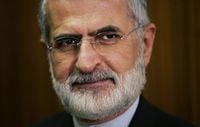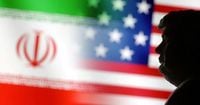In a significant development in U.S.-Iran relations, Kamal Kharrazi, a senior advisor to Iranian Supreme Leader Ali Khamenei, accused the U.S. administration of engaging in "psychological warfare" against Iran, while expressing Tehran's willingness to explore diplomatic talks regarding a renewed nuclear deal. Speaking on Thursday, Kharrazi emphasized that Tehran has "not closed all doors" and is open to indirect discussions with the United States to assess the situation and present its conditions.
"What is seen today in American officials’ behavior is psychological warfare, or the policy of ‘either war or negotiations’ through sending contradictory messages," Kharrazi stated. He criticized the American strategy as an invitation to dialogue that occurs under the looming threat of intensified economic sanctions and military action. Kharrazi remarked, "The result of such a strategy is nothing other than imposing the will of one side on the other by intimidation and threat," as reported by the Tehran Times.
The backdrop to these remarks is the fraught history of U.S.-Iran relations, particularly since 2018 when former U.S. President Donald Trump withdrew from the 2015 Joint Comprehensive Plan of Action (JCPOA), which had provided Iran with sanctions relief in exchange for curbing its nuclear activities. Following the U.S. exit from the deal, Iran has significantly expanded its stockpile of near-weapons-grade uranium, enough to potentially produce six nuclear bombs, according to the International Atomic Energy Agency.
Earlier this month, Trump disclosed that he sent a letter to Khamenei urging Iran to negotiate a new nuclear deal or face military action. In an interview with the Fox Business Network on March 7, Trump stated, "I hope you’re going to negotiate, because it’s going to be a lot better for Iran. The other alternative is you have to do something, because Iran cannot have a nuclear weapon." This statement reflects the ongoing tensions and the critical nature of the negotiations.
In response to Trump's outreach, Iranian Foreign Minister Abbas Araqchi confirmed on Thursday that Iran had sent a reply through Oman to the U.S. president's letter. "Our policy is still to not engage in direct negotiations while under maximum pressure and military threats; however, as it was the case in the past, indirect negotiations can continue," Araqchi stated. This indicates that while Iran remains resistant to direct talks under current conditions, it is still willing to communicate indirectly.
Moreover, Kharrazi reiterated that Tehran's stance has not changed, saying, "The Islamic Republic has not closed all doors. It is ready for indirect negotiations with the United States in order to evaluate the other party, state its own conditions and make the appropriate decision." This statement underscores Iran's complex position, balancing the desire for diplomatic engagement against the backdrop of perceived threats from the U.S.
Despite these diplomatic overtures, Iranian leaders have consistently rejected Trump's warnings to negotiate or face military consequences. Supreme Leader Ayatollah Ali Khamenei has labeled Trump's message as deceptive, further complicating the possibility of a renewed dialogue. Araqchi emphasized that talks are impossible unless the U.S. alters its "maximum pressure" strategy, which has been a point of contention since Trump's withdrawal from the JCPOA.
The situation is further complicated by Iran's military developments. On Wednesday, the Islamic Revolutionary Guard Corps (IRGC) announced the unveiling of a new underground "missile city," showcasing projectiles potentially aimed at U.S. military assets and Israel. The event featured senior military officials, including Maj. Gen. Mohammad Bagheri, the chief of Iran’s armed forces, and Gen. Amir Ali Hajizadeh, head of the IRGC’s aerospace division. This display of military capability comes amid heightened tensions and raises questions about Iran's intentions regarding its nuclear program and regional security.
As the international community watches closely, the implications of these developments are profound. The potential for a renewed nuclear deal hangs in the balance, with both sides weighing their options amid a backdrop of escalating rhetoric and military posturing. The Iranian leadership's willingness to engage in indirect talks could signal a possible thaw in relations, but the persistent threats and sanctions from the U.S. complicate any path forward.
In conclusion, the ongoing dialogue—or lack thereof—between the U.S. and Iran reflects a complex interplay of diplomacy, military strategy, and national security concerns. As both nations navigate this precarious landscape, the stakes remain high for regional stability and global security.





